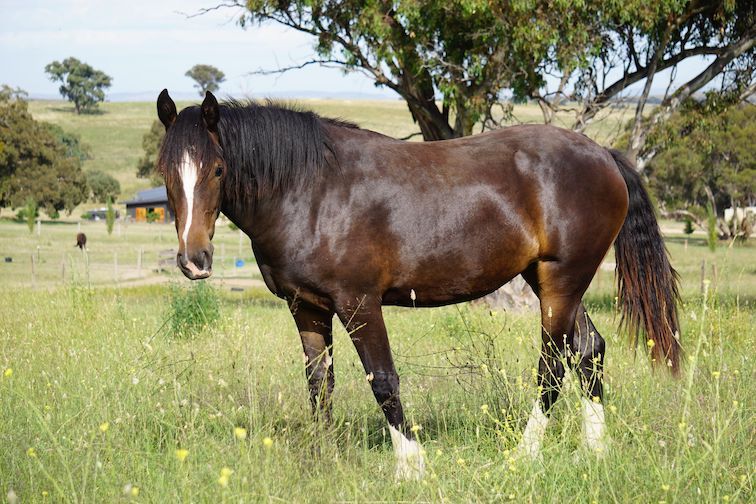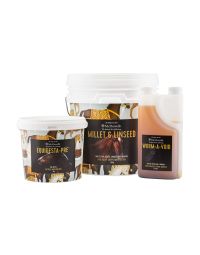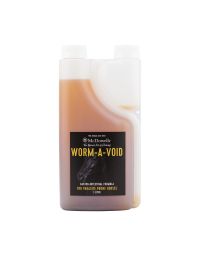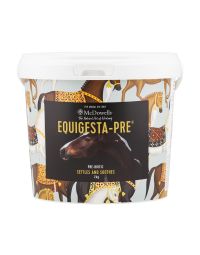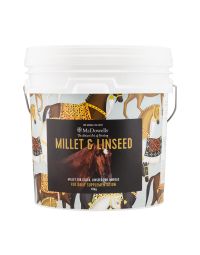Chemical parasite treatments - while sometimes necessary - can place significant strain on a horse’s digestive and detoxification systems. Repeated or routine use of synthetic anthelmintics (wormers) can lead to drench resistance, where parasites no longer respond to treatment. Beyond this, harsh chemicals can damage the gastrointestinal lining and tax vital elimination organs such as the liver and kidneys.
When a horse's system is overwhelmed by chemical exposure, any toxins not processed efficiently are stored in fat tissues. These toxins can be released later, continuing to affect metabolic processes and weakening the immune response. A compromised system struggles to maintain balance, making horses more vulnerable to ongoing health issues.
Why gut ecology matters
Parasites are a natural part of a horse’s internal ecology. A healthy, resilient gut can host a manageable parasite load without issue. It’s unrealistic—and unnecessary—to aim for complete parasite eradication. Instead, we focus on supporting the gut, enhancing immune function, and reducing environmental exposure.
Maintaining clean paddocks, removing manure regularly, and rotating grazing areas are all essential strategies in interrupting the parasite lifecycle. This reduces the burden on the horse and minimises reliance on chemical drenching.
Soil health also plays a role. Using biodynamic sprays, basalt, or dolomite helps rebalance the mineral profile of the pasture. A well-nourished ecosystem supports natural forages and microbial balance that can discourage parasite survival.
The role of herbs in parasite management
Bitter herbs have been used for centuries to help manage parasite loads in both humans and animals. They stimulate digestion, tone gut tissue, and create an internal environment that is less hospitable to worms. One of the most well-known is Wormwood, traditionally used as a digestive tonic and vermifuge.
McDowells Herbal offers a herbal blend steeped in raw apple cider vinegar, including:
Wormwood – Promotes a healthy gut lining and discourages parasite proliferation
Chinese Rhubarb – Traditionally used for its laxative and detoxifying effects
Tansy and Cloves – Thought to interrupt the parasite lifecycle
Garlic and Flaxseed – Support immune and digestive function
Burdock – Supports liver detox and skin health
Aloes, Elecampane, and Slippery Elm are also valuable additions to aid gut repair, reduce irritation, and support mucosal health.
These herbs do not create resistance, nor do they leave chemical residues. They help the horse’s body restore balance and resilience naturally.
When chemical-based drenching is necessary
There are cases - particularly in foals, high-density grazing, or heavy infestations - where strategic chemical intervention is appropriate. Timing is key:
Bots: Treat once the first frost has passed, when larvae are no longer being laid.
Roundworms (Ascarids): Foals between 6 weeks and 6 months are most at risk. Use a targeted drench based on veterinary advice.
Some effective chemical treatments for resistant roundworms include: Strategy-T, Panacur, Equest, and Ammo. Always follow veterinary guidance and monitor faecal egg counts.
A holistic strategy: Combining herbs and management
The most effective parasite management plan includes:
- Clean, rotated paddocks
- Regular manure removal
- Faecal egg monitoring
- Seasonal chemical drenching, when necessary
- Year-round herbal support for gut health and immunity
Herbal parasite support is not about replacing all chemical intervention but rather creating a strong foundation so your horse’s system can cope with natural exposure. The stronger and healthier the gut, the better equipped the body is to manage parasitic threats.
Every horse is different. If your horse has struggled with worm burden, toxicity symptoms, or gut sensitivity, we encourage you to reach out. We offer free consultations to help you build a personalised natural health plan tailored to your horse’s unique needs.
McDOWELLS WORMING PROGRAM ( 3 in 1 bundle )
Our worming protocol consists of Worm-A-Void, Equigesta-Pre and ground millet and linseed.
Worm-A-Void
This tonic may improve gut health by supporting a healthy microbiota and may assist the system to expel worms naturally. Can be also be used as part of a normal drenching rotation program.
Equigesta-Pre
Equigesta-Pre contains a combination of pure herbal powders, brewer's yeast and bentonite clay. Traditionally this combination has been used to aid and promote beneficial intestinal microorganisms. Our unique blend can be used daily as an equine prebiotic to support and stimulate the growth and activity of good bacteria in the digestive system.
Millet and Linseed
Millet contains especially high levels of organic silica compounds as well as carbohydrate and many other minerals. Linseed is a whole feed source of Omega 3 and 6 and Linoleic acids.
The worming program will be sufficient to treat 1 horse for 6 weeks or 2 horses for 3 weeks if using the program as a daily supplement. If using it to treat intensively you can treat up to 6 horses. Guidelines on use are below.
You can use the mix in two ways- one is to do the initial worming, as per the instructions.
Dose 40mls for a horse twelve hourly for 48 hrs. Then 1 dose per week thereafter, mixed in a cup of ground Linseed Meal after fasting overnight.
Alternatively, you can then start giving 20mls x 2 a day and give in a continuum for 6-8 weeks. This is useful in warm wet conditions where worm eggs and larvae in the pasture are particularly active.
